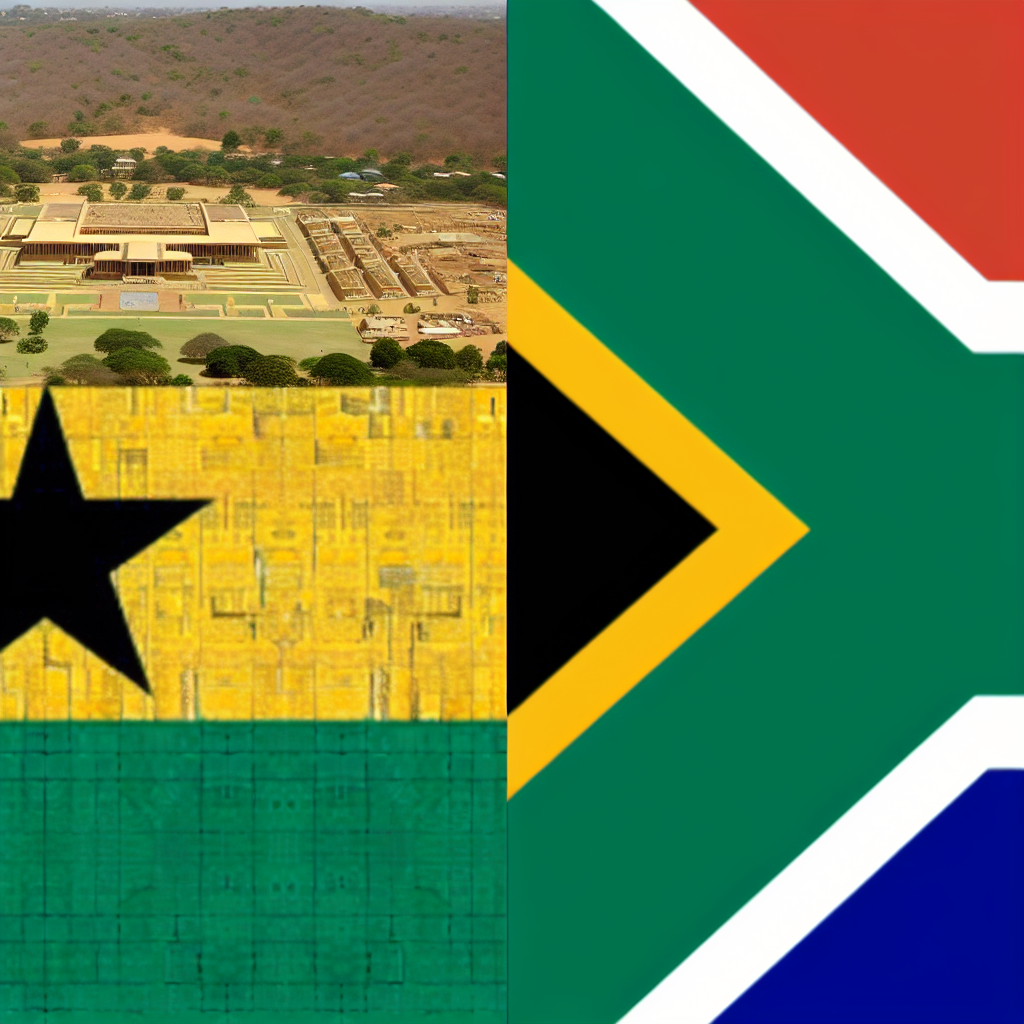
In the dynamic landscape of African nations, Ghana and South Africa stand out as influential players with rich histories and vibrant economies. This article delves into a comprehensive comparison between Ghana and South Africa, exploring their historical paths, economic strengths, and cultural tapestries. By examining these aspects, we uncover the unique trajectories that shape their identities and global roles, offering insights for travelers, investors, and enthusiasts seeking to understand these powerhouse countries.
Historical Background
Ghana and South Africa boast storied pasts that have profoundly influenced their modern identities. Ghana, often hailed as the first sub-Saharan African nation to gain independence in 1957 under Kwame Nkrumah, draws from ancient empires like the Ashanti and the medieval Ghana Empire, which thrived on gold trade. This legacy of resilience against colonialism fostered a strong sense of Pan-Africanism. In contrast, South Africa’s history is marked by European colonization starting with the Dutch in 1652, followed by British rule, leading to the Boer Wars and the formation of the Union in 1910. The apartheid era from 1948 to 1994 institutionalized racial segregation, sparking global anti-apartheid movements led by figures like Nelson Mandela. Post-apartheid, South Africa transitioned to democracy in 1994, emphasizing reconciliation through the Truth and Reconciliation Commission. While Ghana’s history emphasizes early independence and cultural continuity, South Africa’s narrative highlights overcoming systemic oppression, creating a foundation for their respective paths in governance and international relations.
Economic Landscape
Economically, Ghana and South Africa present contrasting yet complementary profiles that highlight Africa’s diverse growth potential. Ghana’s economy, driven by gold, cocoa, and oil, has seen robust growth, averaging 6-7% annually in recent decades, positioning it as a stable West African hub. Key sectors include agriculture, which employs over half the workforce, and emerging industries like technology in Accra’s Silicon Savannah. However, challenges like inflation and debt persist. South Africa, Africa’s most industrialized nation, boasts a diversified economy with mining (platinum, gold), manufacturing, and finance centered in Johannesburg. As a BRICS member, it leads in GDP but grapples with high unemployment (around 32%) and inequality, reflected in its Gini coefficient of 0.63. Both nations attract foreign investment—Ghana through free trade zones and South Africa via advanced infrastructure—but South Africa’s larger scale offers more opportunities in renewable energy and tourism, while Ghana focuses on sustainable agriculture and digital innovation for inclusive growth.
Cultural and Social Dynamics
Culturally, Ghana and South Africa weave intricate social fabrics that reflect their multicultural heritages and ongoing evolutions. Ghana’s society is a mosaic of over 100 ethnic groups, with Akan, Ewe, and Ga-Dangme predominant, united by traditions like kente cloth weaving and festivals such as the Ashanti Akwasidae. Religion plays a pivotal role, with Christianity dominant alongside Islam and traditional beliefs, fostering community harmony. South Africa, dubbed the “Rainbow Nation,” encompasses 11 official languages and diverse groups including Zulu, Xhosa, Afrikaans, and Indian communities, enriched by post-apartheid arts like Soweto’s street murals and music genres from kwaito to jazz. Socially, both face inequalities—Ghana in rural-urban divides and South Africa in lingering racial disparities—but initiatives like Ghana’s free education policies and South Africa’s affirmative action aim for equity. Their cultural exchanges, through events like the FIFA World Cup hosted by South Africa in 2010 and Ghana’s Panafest, strengthen bilateral ties and promote African unity.
In summary, Ghana and South Africa, through their historical resilience, economic vigor, and cultural richness, exemplify Africa’s potential and challenges. While Ghana shines in stability and natural resources, South Africa leads in industrialization and diversity. Ultimately, understanding this Ghana vs South Africa comparison reveals opportunities for collaboration, encouraging readers to explore these nations for investment, travel, or cultural immersion, fostering a connected African future.